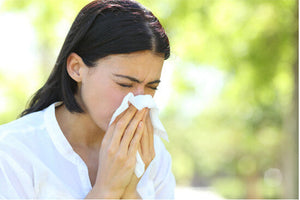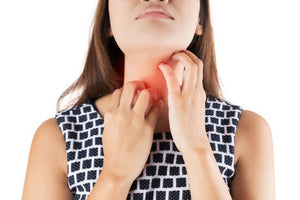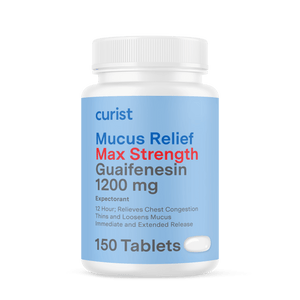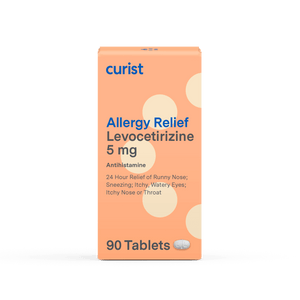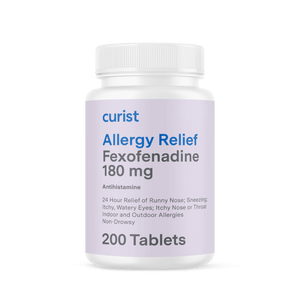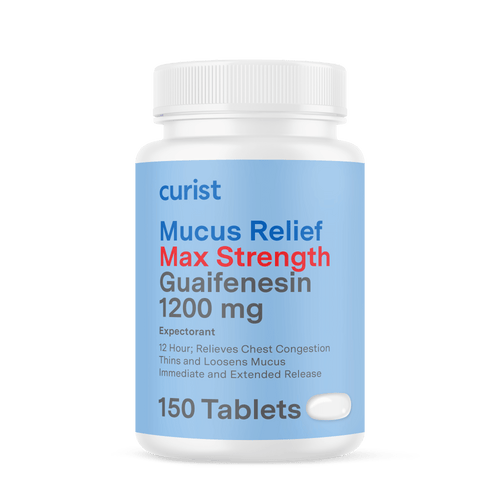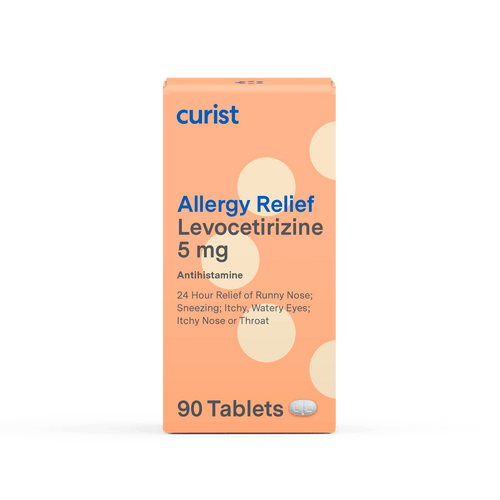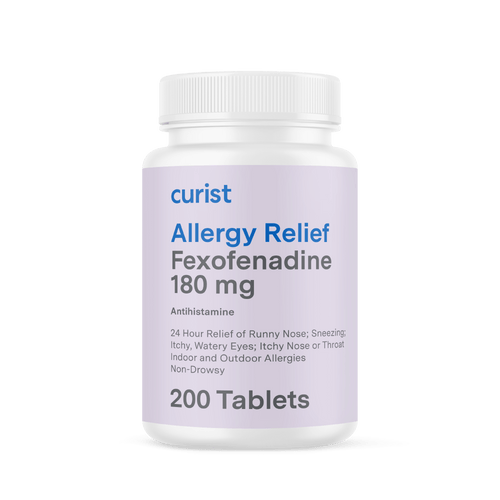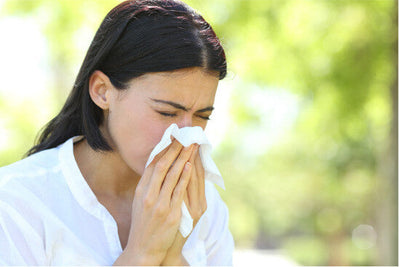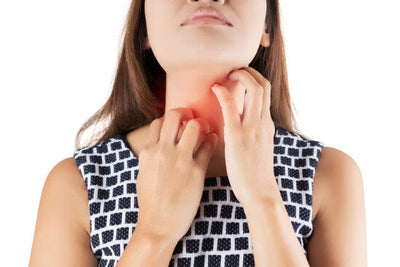by Audrey Anderson, The University of Texas at Austin College of Pharmacy, and Dr. Marc Goldstein, MD, Curist Medical Advisor
Curist delivers over-the-counter medicines to your door at a fraction of the price of traditional brands. We hope everyone stays safe and healthy during this time.
The French Health Minister recently cautioned against use of ibuprofen (i.e., Advil and Motrin) to treat novel coronavirus infection (COVID-19). With spring allergy season already here, many are wondering if it’s safe to take antihistamines, like cetirizine (brand Zyrtec), which help to suppress the body’s response to histamine.
How Do Zyrtec, Xyzal, and Other Antihistamines Work? Do Antihistamines Hurt My Immune System?
When certain people are exposed to allergens like pollen, their bodies will release excessive amounts of a chemical called histamine, which will bind to receptors on certain cells that lead to allergy symptoms. These symptoms can include itchy eyes, nose, or throat, as well as watery eyes or a runny nose. Histamine can trigger other symptoms, too, such as hives and swelling.
Antihistamines block your body’s response to histamine and therefore reduce allergy symptoms. In general, antihistamines do not suppress your body’s vital immune response to viruses, bacteria, or other foreign invaders.
To learn more about antihistamines and how they work, checkout Antihistamines: Fighting Back Against Allergies, by Dr. Marc Goldstein, MD, and Antihistamines FAQ.
If you are not sure if you have allergy symptoms or COVID-19, learn more about the differences in Allergies vs Coronavirus.
Does Zyrtec, Allegra, Xyzal and Other Antihistamines Increase My Risk For Coronavirus (COVID-19)?
Antihistamines do not suppress the immune system, and we have found no evidence that antihistamines would increase a person’s chances of contracting coronavirus or affect a person’s ability to fight a coronavirus infection.
This applies to all antihistamines, including the cetirizine (brand Zyrtec), loratadine (brand Claritin), fexofenadine (brand Allegra), levocetirizine (brand Xyzal), and diphenhydramine (brand Benadryl).
Are Zyrtec, Allegra, Claritin and Other Antihistamines Safe To Use For My Allergies If I Also Have Coronavirus?
Many antihistamines, including Zyrtec, are available for purchase over the counter (without a prescription). Curist Allergy Relief is a 5-star rated antihistamine available here. Many Curist customers have asked which antihistamines may be safe to use if they also become infected with coronavirus. At this time, there is no recommendation or evidence suggesting that individuals at risk for coronavirus or those who already have coronavirus should avoid antihistamines.
Why Taking Allergy Medication May Be Critical to Reducing Your Coronavirus Risk
Especially this spring, due to overriding concerns about coronavirus spread, it is critical that allergy sufferers proactively treat any allergy symptoms for their own personal safety as well as for those around them. Many people contract coronavirus by having the virus on their hands and then touching their face, which allows the virus to enter the body. People who do not manage their seasonal allergies are constantly touching their nose and eyes. Such frequent, reflexive nose and eye contact will put you at exponentially higher risk for contracting coronavirus than someone who does not touch her face, for instance, because she is proactively and consistently taking antihistamines or other allergy relief products for symptom relief.
Being proactive with your allergy relief can also give you and the people around you peace of mind and help ensure that common allergy symptoms, like coughing or sneezing, are not misconstrued as coronavirus. Antihistamines, which are generally safe to use as directed, will not provide relief from coronavirus symptoms but will help with allergy symptoms. Allergy sufferers will typically begin to experience some symptom relief from antihistamines within 24 hours.
This spring, millions of Americans may suffer from both allergies and coronavirus. More than 50 million Americans suffer from allergies annually, and initial data projections indicate that even more Americans will be infected with coronavirus this year. Even in the event that someone is infected with coronavirus and suffering from allergies, antihistamines will at least help reduce the allergy-induced sneezing that otherwise may more easily spread coronavirus if untreated.
Read Is it Allergies vs Coronavirus: How to Tell the Difference, by Marc Goldstein, MD, to discover how to tell the difference.
Just one more point about antihistamines…
Keep in mind that there may be other reasons for a person to avoid certain antihistamines, such as age, health conditions, and other medications. Talk to your doctor or pharmacist if you have specific questions about antihistamines and whether they are right for you. Visit Curist’s blog and website to discover more about allergy relief, as well as allergies and coronavirus!


